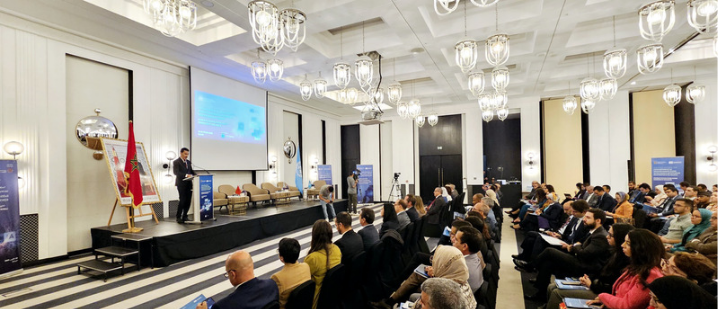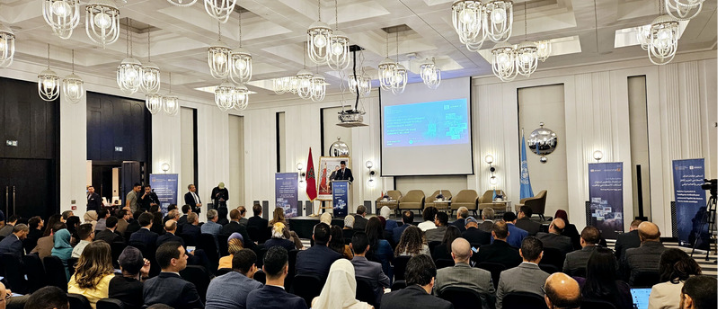CNDH aspires to collectively advocate for the design and development of AI systems based on a human rights approach

Mr. Mounir Bensalah, Secretary-General of the National Human Rights Council (CNDH) emphasized that the CNDH aspires to collectively advocate for responsible and ethical Artificial Intelligence (AI) based on a human rights approach, often referred to as 'Human Rights by Design.'
This statement was delivered at the opening session of the national symposium on “The use and development of responsible AI in Morocco”, held on Monday 23 October 2023. the event was organized by the Ministry of Digital Transition and Administrative Reform in cooperation with the United Nations Educational, scientific, and cultural Organization (UNISCO).
He stressed that the CNDH's primary concern as a human rights defender is to ensure that AI –based algorithms and technologies do not violate human rights, uphold freedom of action and choice without bias or misleading, protect privacy, and are against discrimination and stereotypes…
At this event, Mr. Bensalah highlighted that the CNDH published a comprehensive document in December 2022, which includes 76 recommendations and 10 guidelines related to AI ethics, all aiming to protect human rights. This document is the third of its kind produced by a national human rights institution worldwide, one of the 250 internationally approved by the Office of the High Commissioner for Human Rights, and the second at the continental scale, he noted.

Ms. Ghita Mezzour, Minister Delegate in charge of Digital Transition and Administrative Reform, underscored that Morocco stands out as one of the earliest countries to implement UNESCO's recommendations on AI ethics adopted at the 41st session of UNESCO's General Conference in November 2021 in Paris.
The minister also shed light on the vast and limitless possibilities offered by AI in driving transformation across various sectors and its positive impact on citizens' lives. She also pointed out the numerous initiatives currently underway in Morocco, including the establishment of research and development centers in Oujda, Rabat, Fez, and Benguerir, focusing on AI.
Mr. Eric Falt, Regional Director of UNESCO's Maghreb Office, noted that the unanimous approval of UNESCO's Recommendation on AI Ethics in November 2021 marked the first international normative framework focused on ethics in AI development and usage. He also highlighted that Morocco was one of the first countries to respond to UNESCO's recommendation for ethical AI.
oStakeholders will continue over two days to address several topics, including:
-AI opportunities and challenges in Morocco,
-AI technology's implications on population,
-AI, economy, and infrastructure.






















